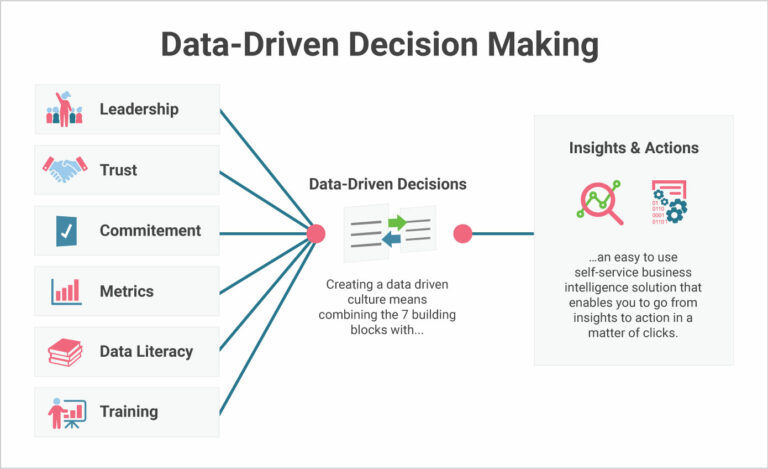In today’s fast-paced and competitive business landscape, organizations are constantly seeking ways to gain a competitive edge and stay ahead of the curve. One key strategy that has emerged as a crucial component of modern business success is the implementation of Business Intelligence (BI). Business Intelligence refers to the process of collecting, analyzing, and interpreting large data sets to inform business decisions. In this article, we will delve into the world of Business Intelligence, exploring its definition, benefits, components, and applications, as well as providing answers to frequently asked questions.

What is Business Intelligence?
Business Intelligence is a broad term that encompasses a range of activities, including data mining, reporting, and analytics. It involves the use of various tools, technologies, and methodologies to transform raw data into meaningful insights that can be used to drive business growth and improvement. The primary goal of Business Intelligence is to provide stakeholders with accurate, timely, and relevant data to support informed decision-making.
Benefits of Business Intelligence
The benefits of Business Intelligence are numerous and significant. Some of the most notable advantages include:
- Improved Decision Making: Business Intelligence provides decision-makers with access to accurate and up-to-date data, enabling them to make informed choices that drive business success.
- Increased Efficiency: BI helps to automate many manual processes, freeing up staff to focus on higher-value tasks and improving overall productivity.
- Enhanced Customer Insights: By analyzing customer data, organizations can gain a deeper understanding of their target audience, enabling them to develop targeted marketing campaigns and improve customer satisfaction.
- Competitive Advantage: Business Intelligence can provide organizations with a competitive edge by enabling them to respond quickly to changing market conditions and stay ahead of the competition.
- Cost Savings: BI can help organizations to identify areas of inefficiency and waste, enabling them to reduce costs and improve profitability.
Components of Business Intelligence
Business Intelligence consists of several key components, including:
- Data Warehousing: A data warehouse is a centralized repository that stores data from various sources, providing a single, unified view of an organization’s data.
- Data Mining: Data mining involves the use of various techniques, such as statistical analysis and machine learning, to identify patterns and relationships within large data sets.
- Reporting and Analytics: Reporting and analytics tools provide users with the ability to create interactive and dynamic reports, enabling them to analyze and interpret data in real-time.
- Data Visualization: Data visualization involves the use of various visualizations, such as charts, graphs, and dashboards, to communicate complex data insights in a clear and concise manner.
Applications of Business Intelligence
Business Intelligence has a wide range of applications across various industries, including:
- Finance: BI is used in finance to analyze financial data, identify trends, and predict future performance.
- Marketing: BI is used in marketing to analyze customer data, develop targeted campaigns, and measure the effectiveness of marketing initiatives.
- Operations: BI is used in operations to optimize business processes, improve efficiency, and reduce waste.
- Human Resources: BI is used in human resources to analyze employee data, identify talent gaps, and develop targeted recruitment and retention strategies.
Frequently Asked Questions
- What is the difference between Business Intelligence and Business Analytics?
Business Intelligence focuses on descriptive analytics, providing insights into what has happened in the past. Business Analytics, on the other hand, focuses on predictive and prescriptive analytics, providing insights into what may happen in the future and what actions to take. - What are the key skills required for a career in Business Intelligence?
Key skills required for a career in Business Intelligence include data analysis, reporting, and visualization, as well as strong communication and problem-solving skills. - What are the most popular Business Intelligence tools?
Some of the most popular Business Intelligence tools include Tableau, Power BI, and QlikView. - How can I get started with Business Intelligence?
To get started with Business Intelligence, start by identifying your organization’s key data sources and developing a clear understanding of your business goals and objectives. - What are the biggest challenges facing Business Intelligence professionals?
Some of the biggest challenges facing Business Intelligence professionals include data quality issues, lack of standardization, and limited resources.
Conclusion
Business Intelligence is a powerful tool that can help organizations to gain a competitive edge and drive business success. By providing decision-makers with accurate and timely data, Business Intelligence enables informed decision-making, improves efficiency, and enhances customer insights. As the business landscape continues to evolve, the importance of Business Intelligence will only continue to grow. Whether you are a seasoned Business Intelligence professional or just starting out, we hope that this article has provided valuable insights and information to help you unlock the power of Business Intelligence.
In today’s data-driven world, organizations that fail to invest in Business Intelligence risk being left behind. By leveraging the benefits of Business Intelligence, organizations can stay ahead of the curve, drive business growth, and achieve long-term success. We encourage you to explore the world of Business Intelligence further, and to discover the many ways in which it can benefit your organization. With the right tools, skills, and knowledge, you can unlock the full potential of Business Intelligence and take your business to the next level.
Closure
Thus, we hope this article has provided valuable insights into The Power of Business Intelligence: Unlocking Data-Driven Decision Making. We hope you find this article informative and beneficial. See you in our next article!